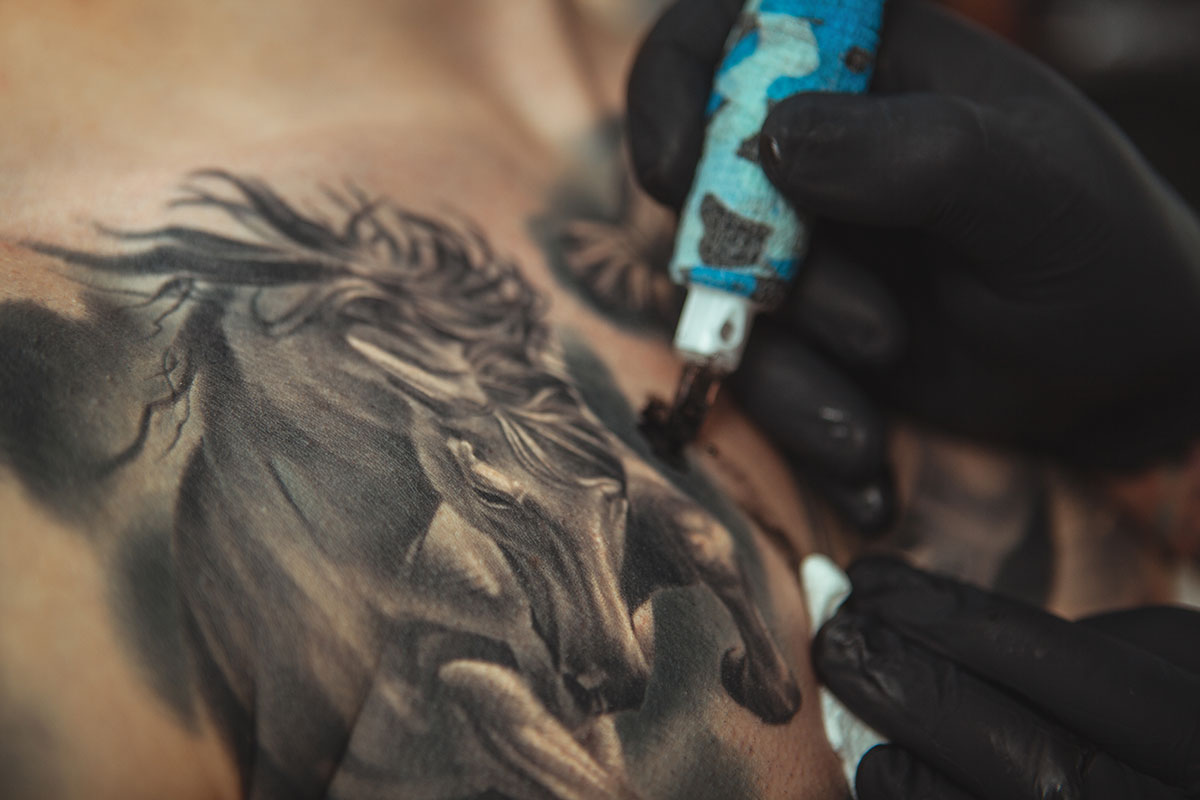Opening a tattoo parlor can be an exciting venture, but it’s essential to understand the financial aspects involved. From securing the right location to stocking up on tattoo supplies wholesale, here’s a detailed breakdown of the costs associated with launching your own tattoo salon.

These are the main key points that you might know about the opening a tattoo parlor in 2023:
- Starting a profitable tattoo business requires patience, hard work, and commitment.
- Location is crucial, and targeting high traffic areas like urban centers or nightlife zones is ideal.
- Decide on the services to offer, considering competition and niche specialization, such as tattoo removal.
- Create a detailed business plan including an executive summary, pricing strategy, marketing plan, and more.
- Effective marketing and advertising are essential to make potential customers aware of your tattoo shop.
- Pricing should be competitive, taking into account factors like skill level and local economic standards.
- Ensure you have the necessary licenses and certifications required by your state or region.
- Prepare for challenges and adapt to industry trends, as the tattoo industry can be influenced by external factors.
Initial Considerations for Opening a Tattoo Parlor
When embarking on the journey of opening a tattoo parlor, there are several critical initial considerations to keep in mind. These factors lay the foundation for a successful and thriving tattoo salon. In this section, we’ll delve into two crucial aspects: location selection and lease costs, and legal requirements and licensing fees.
Selecting the right location is crucial for the success of your tattoo parlor. Consider factors like visibility, foot traffic, and proximity to potential clients.
Location Selection and Lease Costs
The cost of leasing a space will vary depending on the location’s desirability and size. Keep in mind that prime locations may come with higher lease expenses.
Legal Requirements and Licensing Fees
Before opening your tattoo parlor, you must comply with legal regulations and obtain the necessary permits and licenses. The cost of licensing can vary significantly from one jurisdiction to another. Additionally, you may need to factor in legal consultation fees to ensure you meet all compliance requirements.
Essential Tattoo Supplies and Equipment Costs
To offer quality tattoo services, you’ll need the right equipment and supplies. Here’s a breakdown of the key expenses:
Tattoo Machines and Needles
Investing in high-quality tattoo machines and needles is essential. Tattoo machines can range from a few hundred to over a thousand dollars, depending on their quality and functionality. Needles and disposable tubes are recurring expenses, so plan for ongoing costs.
Ink and Pigments
Quality tattoo ink is a must for vibrant and long-lasting tattoos. Prices for tattoo ink vary, with premium brands often costing more. Consider your client base and the types of tattoos you’ll be doing when selecting your ink palette.
Sterilization and Hygiene Supplies
Maintaining a sterile environment is crucial in the tattoo industry to prevent infections. You’ll need autoclaves, ultrasonic cleaners, disposable gloves, and sterilization pouches. These supplies are non-negotiable and are vital for client safety.
Furniture and Workstations
Comfortable furniture and well-designed workstations contribute to a positive client experience. Invest in ergonomic chairs, adjustable tables, and adequate lighting to create a welcoming and functional workspace.
Reception and Waiting Area
Your reception and waiting area set the tone for your tattoo parlor. Costs may include seating, décor, and a reception desk. Creating a visually appealing and comfortable space can help attract and retain clients.
Building and Renovation Costs
Depending on the condition of your chosen location, you may need to budget for renovations and interior design. Costs may include wall repairs, flooring, painting, and installing tattoo-themed decor.
Staffing and Training Expenses
Hiring and training your tattoo artists and apprentices is a critical investment. Salary and compensation packages, along with ongoing training and certification costs, should be factored into your budget.
Marketing and Promotion Costs
Building a strong brand presence and attracting clients require marketing efforts. Here’s where your secondary keywords come into play:
Building a Tattoo Parlor Brand
Establishing your tattoo parlor as a reputable brand involves website development, social media marketing, advertising campaigns, and community engagement. These efforts may include creating a professional website, running targeted social media ads, and participating in local events or tattoo conventions.
Conclusion
Opening a tattoo parlor involves various costs, from securing the right location to investing in top-notch equipment and supplies. It’s essential to conduct thorough research and create a comprehensive budget to ensure the success of your tattoo salon. By understanding and managing these costs effectively, you can embark on your journey as a tattoo parlor owner with confidence.
In summary, while the initial investment in opening a tattoo parlor can be substantial, a well-planned budget and a commitment to quality and safety will help you thrive in this exciting industry.









